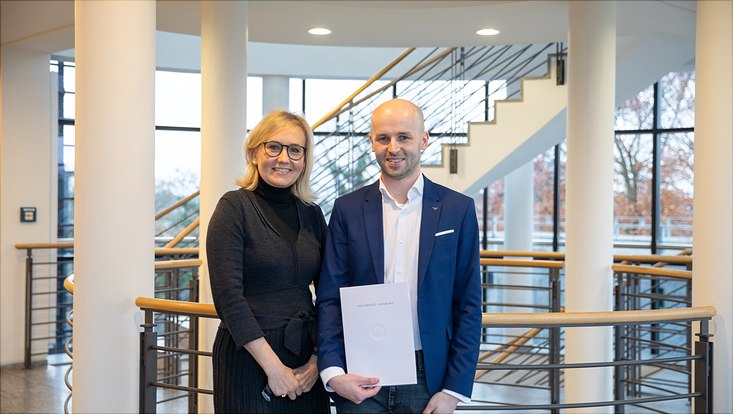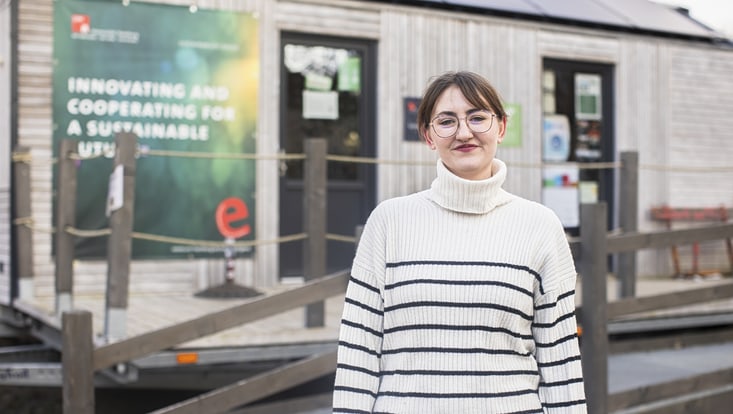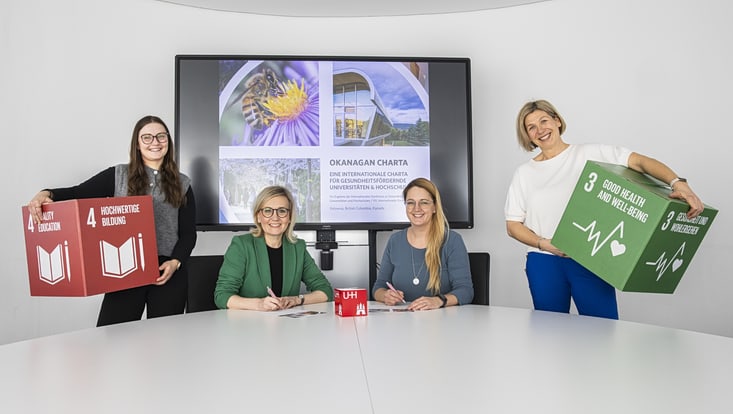Jan Pentak is this year’s DAAD prizewinnerTheology studies amongst music, research, and intercultural engagement
29 November 2024, by Lennart Wichmann

Photo: Lea Modrozinski
After studying the organ at the Lübeck University of Music, Slovakian-born Jan Pentak began studying Protestant theology at the University of Hamburg in 2020. He has now been awarded the DAAD Prize for International Students for his outstanding achievements.
Mr. Pentak, what motivated you to study at the University of Hamburg?
I am motivated by my many years of dealing with questions of faith and the connection between music and theology. Above all, I was impressed by the broad, interdisciplinary theological program offered by the University. This enables me to take a serious academic approach to pursuing my interests.
Can you tell us more about your student projects and research?
In my term paper entitled “Witch Trials in Groß Ullersdorf”, I examined the witch persecutions in North Moravia between 1678 and 1692. The work analyses the interactions between religion, law and society during the Catholic counter-reformation.
My research focused particularly on the role of magic, its perception in a theological context and the practices of the Inquisition. By analyzing these local witch hunts, I was able to shed light on larger historical contexts and make an important contribution to the understanding of the religious and social transformation processes of the time. The term paper received an award from the Theology at the Gateway to the World association in spring 2023.
Why is intercultural and social commitment important to you and how do you put this into practice?
Intercultural and social commitment is essential for me, as it builds bridges between cultures and promotes values such as peace, justice, and solidarity. In our globalized world, I believe that intercultural engagement is crucial to breaking down prejudices and strengthening mutual understanding.
These values not only shape my personal actions, but also reflect my academic and professional interests. For example, I deal with the question of how theological perspectives and ethical principles can contribute to shaping a fairer and more inclusive society. As a church musician, I also carry these values through my musical work in the congregation.
From my home country, Slovakia, I particularly took with me the values of community and hospitality. Living in a small country has shown me how important it is to overcome challenges through cohesion and to take a shared approach to life.
What advice would you give to other international students who would like to study here?
My experience here has been very good and I appreciate the many opportunities that the University offers. I would particularly like to highlight the wide range of support for students, which supports not only academic but also personal exchange and integration. Hamburg is a lively, cosmopolitan city that is ideal for studying and welcomes international students.
What exciting projects are still ahead of you?
My goal is to complete my studies in January 2025 with the First Theological Examination. For the future, I can imagine working as a pastor in a church as well as doing a doctorate on a research project and teaching at a university. I would also like to continue giving concerts as an organist and continue my musical career.
DAAD Prize
Funded by the Federal Foreign Office, the €1,000 DAAD Prize is awarded each year to outstanding international students or doctoral researchers who have distinguished themselves both through their academic achievements and their social or intercultural commitment. The prize aims to demonstrate to a broad audience how enriching international students and doctoral researchers are for the higher education community. This year's DAAD Prize was presented by Vice-President Prof. Dr. Natalia Filatkina on November 27, 2024.


